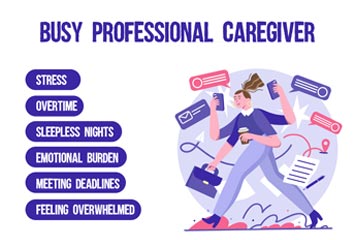The Importance of Physical and Disability Support
A vital service that can assist people who
are unable to properly care for themselves because of a physical condition or
impairment is physical and disability support. For those who struggle with
daily activities (ADLs) including washing, dressing, grooming, and using the
restroom, this kind of support may be crucial. It may also involve assistance
with ambulation, transferring, and mobility.
Adults and children who suffer from a range of ailments, such as arthritis, multiple sclerosis, spinal cord injuries, stroke, cerebral palsy, and developmental delays, can receive physical and disability care. In order to support clients with their ADLs and other duties in a way that fosters their independence and dignity, carers who provide this type of support are trained in doing so. As required, they may also help with meal preparation, medication administration, and other facets of daily life.
The Advantages of Disability and Physical Support
Individuals can retain their freedom and
quality of life with the use of physical and disability support. People with
physical limitations or conditions can maintain their independence and take
part in their favourite activities with the aid of caretakers. This can enhance
their psychological and emotional health and offer them a feeling of direction.
Caregivers who offer physical and
disability support also offer their patients emotional support and
companionship in addition to their practical assistance. They can aid clients
in maintaining their connection to the outside world and serve as a crucial
form of socialisation. This can be crucial for people who might be isolated
because of a condition or impairment.
Family members and loved ones who are
unable to provide all of the care their loved one requires on their own can
find comfort in physical and disability help. They can rely on their loved one
to get the support and care they require to preserve their independence and
quality of life.
The Different Kinds of Disability and Physical Support
Depending on the needs of the individual,
support for physical and disability needs can take many different forms.
Typical forms of assistance include:
·
Personal care: This covers help
with ADLs like showering, grooming, dressing, and using the restroom.
·
Support for mobility: This
covers aid with ambulation, transferring, and other mobility-related
activities. For people with mobility issues, this kind of support may be
extremely crucial.
·
Medication management: This
includes assistance with following prescription instructions for taking drugs
and keeping note of any medication changes.
·
Meal preparation: This refers
to helping with meal preparation and ensuring that dietary requirements are
satisfied.
·
Homemaking: This includes aid
with light housekeeping, laundry, and other duties that contribute to the
upkeep of a clean and secure living space.
·
Companionship: This term refers
to both socialisation and emotional support.
·
Care for people with certain
diseases, such as Alzheimer's disease or other types of dementia, falls under
the category of specialised care.
The Value of Caregiver Education
The ADLs and other duties that clients need
assistance with are handled by carers who are trained to support their freedom
and dignity. They are prepared to deal with and support customers who may have
emotional or physical restrictions. The specific needs of people with dementia
are understood by carers who specialise in providing care for clients with
Alzheimer's disease or other forms of dementia. They are able to offer the
right support and help.
Picking the appropriate kind of assistance
Different settings, such as in-home care,
adult day care facilities, and assisted living facilities, can offer physical
and disability support. It's crucial to pick the support strategy that best
suits the person and their unique requirements. In-home care, for instance, can
be the best choice for someone who wants to keep living in their own house and
maintain their freedom. An assisted living facility can be a better option for
someone who requires more organised care and support. To come up with the ideal
care plan, it is crucial to engage with medical experts, carers, and the person
receiving care.
In conclusion, physical and disability assistance is a crucial service that can aid those who can't adequately care for themselves because of a physical ailment or handicap. In addition to giving their loved ones peace of mind, it can help them preserve their independence and quality of life. These types of carers are taught how to help patients with ADLs and other duties in a way that supports their independence and dignity. Individuals with physical disabilities or conditions can continue to live in their own homes, take part in activities they like, and get the emotional support they require to lead fulfilling lives with the correct kind of care.




